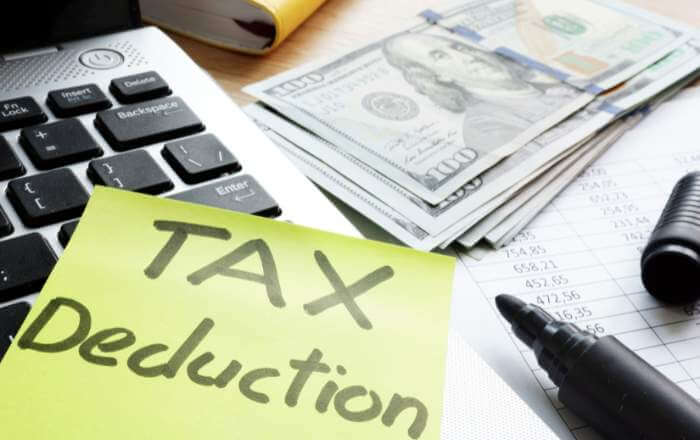Small business owners face a multitude of expenses. However, many of them can be deducted from your taxes. Knowing which expenses are eligible for tax deductions will save you thousands each year. When smart business owners are informed about the available deductions, they often find that they have been missing out on valuable opportunities to save money.
Introduction to Small Business Tax deductions
Deductions from taxes reduce your income tax, which in turn lowers what you owe to the IRS. These deductions are a vital tool for small business owners to manage cash flow and invest in growth. Understanding what is a legitimate expense for a business and keeping proper records are the keys to success. Each dollar that you legally deduct stays in your company and does not go to taxes. The IRS allows companies to deduct normal and necessary business expenses directly related to the running of your business.
Common Tax Deductions For Small Businesses
Many entrepreneurs do not fully take advantage of the deductions available for small businesses. All office supplies, software subscriptions, and professional services are deductible. When they are for business purposes, meals on the job can be deducted at 50%. All insurance premiums, including those for liability and property coverage, are fully deductible. Professional development costs, industry memberships, and conference fees also reduce your taxable income. It is important to ensure that these expenses are not only normal in your industry but also necessary for your business.
Home Office Deductions
You may be eligible for a home office deduction if you work at home. This can result in substantial savings. The IRS provides two ways to calculate this deduction. You can deduct $5 for every square foot up to 300 feet of space in your home office. The method that uses actual expenses requires more detailed records, but it can lead to larger deductions for home office users with high costs. To qualify, your home office must be exclusively used for business. The space cannot be used as a family room, guest bedroom, or for other purposes.
Transport and Vehicle Expenses
The deduction of business-related vehicle expenses is another important opportunity. You can select between the standard mileage method and the actual expense method. Standard mileage rates are simpler and allow you to deduct an amount per mile driven for business. To use the actual expense method, you must track all vehicle costs to determine what percentage of them was used for business. Business travel expenses such as flights, hotels, and rental cars are usually fully deductible. Keep detailed records for all business trips. Include the dates, purpose, and costs incurred.
Education and Training costs
Investing in skills and knowledge will pay dividends that go beyond better business performance. Education expenses to maintain or strengthen the skills required in your business are fully deductible. Courses, workshops, and books directly related to your company fall under this category. Conferences and seminars in the industry are eligible as educational expenses. Online courses that improve your professional abilities also count. Education that prepares you to enter a new business or trade is not generally eligible for current deduction.
Advertising and marketing expenses
It is important to market your business for it to grow. Fortunately, the majority of advertising expenses can be deducted. All of these expenses are eligible: website development and maintenance costs, social media ads, print advertisements, and promotional materials. Marketing expenses include business cards, brochures, and branded merchandise. Advertising expenses can include sponsorship costs for local organizations or events. Digital marketing tools, such as email marketing platforms and search engine optimization, are valid business deductions. They can reduce your tax burden.
Act Now to Save Taxes
Organize your small business, maintain documentation, and strategize throughout the year to optimize your tax deductions. Implement a system for tracking all business expenses. Keep receipts of every purchase that is deductible. Work with a tax professional to identify other deductions that are specific to your situation and industry. Tax laws are constantly changing, so it’s important to stay informed. This will protect your business as well as ensure you take advantage of all available opportunities to reduce your tax burden.
FAQs
1. What documents do I need to maintain for tax deductions?
Keep detailed records for every expense, including invoices, bank statements, and the business purpose. The IRS requires proof of the amount, date, and place where each deduction occurred, as well as its business purpose.
2. Can I claim expenses incurred before my business is officially established?
Startup costs that you incur before your business starts up may be deductible. Startup costs can be deducted up to $5,000 per year. The remaining costs are amortized for 15 years.
3. How long do I need to keep my business tax records?
Keep your tax records at least for three years after the date of filing. If you have employees or own property, you may need to keep records longer.
4. Can I claim business expenses that were paid for with my personal funds?
As long as the business expense is legitimate, it can be deducted. Keep records that prove these costs were related to your business.




